




 |
   |
 |
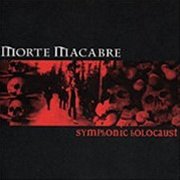 |
Symphonic Holocaust (1998, 57.19) ****½/TTTTT |
|
| Apoteosi del Mistero Threats of Stark Reality Sequenza Ritmica e Tema Lullaby Quiet Drops Opening Theme The Photosession Symphonic Holocaust |
[Double LP adds: Irrealtà di Suoni] |
|
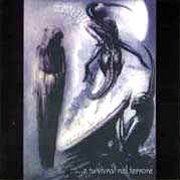 |
...E Tu Vivrai Nel Terrore (1998, 3.11) ***½/TT½[Morte Macabre contribute]Irrealtà di Suoni |
Current availability:
Mellotron(s) used:
Morte Macabre were a one-off side project from two of Sweden's best progressive groups of the '90s: Anekdoten and Landberk, featuring two members from each band, although Anekdoten's website doesn't rule out the possibility of another collaboration in the future. The guilty parties are Nicklas Berg (guitar) and Peter Nordins (drums) from Anekdoten and Stefan Dimle (bass) and Reine Fiske (guitar) from Landberk. All four members play Mellotron. Yes, all four, various members chipping in on Rhodes, Moog, Theremin etc. The concept behind Symphonic Holocaust was to cover various horror film themes in their own inimitable style and, on the whole, it works. For horror buffs, the full run-down of what's from where is as follows:
Threats Of Stark Reality is the band's own rather disturbing intro to Sequenza Ritmica E Tema and the title track is group-written, presumably inspired by the rest of the album. The track selection was made by Stefan Dimle (Mellotronen label boss, incidentally), who also arranged the pieces. The tracks were obviously carefully chosen for maximum 'gloom factor'; generally speaking, it doesn't get much gloomier than this, every track except the unaccountably frivolous Opening Theme to 'Cannibal Holocaust' being quite unremittingly dark and minor-key. There's more Mellotron than you can shake a stick at, of course, although it's impossible to work out who plays what and where, although the two guitarists' different styles are pretty easy to spot. It's difficult to pick out Mellotron highlights, although both Apoteosi Del Mistero and Sequenza Ritmica E Tema may have the edge on the rest of the album, while Lullaby from Rosemary's Baby is pretty cool, too. The seventeen-minute Symphonic Holocaust, which sounds largely jammed-out (apologies if I'm wrong) sticks some Mellotron brass in, joining the more standard strings/choir/flutes and possibly cellos splattered bloodily across the disc.
Anyway, what can I say? The music's excellent, the Mellotron more so; an absolute must for progressive and Mellotron fans. Incidentally, there's a double-LP version of the album which adds Irrealtà Di Suoni, from the ...e tu Vivrai Nel Terrore various artists effort released around the same time.
See: Anekdoten | Landberk | ...E tu Vivrai Nel Terrore
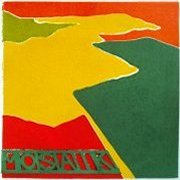 |
Mosaik (1982, 56.15) ***½/½ |
|
| Återfunnen Björnstorp Kirstens Rum Tiden Bara Går Önnestad Ett Oskrivet Blad Pappa Har Gått Vilse Re-Båpp |
Trio Mosaik: Gul, Röd, Orange |
|
Current availability:
Mellotron used:
It seems Sweden's Atlas never had a very easy time of it, only releasing one album in their six-year history, 1979's Blå Vardag. Ad Perpetuam Memoriam's mid-'90s CD reissue includes several bonus tracks, including one by post-Atlas outfit Mosaik, formed by all of Atlas minus one of their two keyboard players, Björn Nielsen. Mosaik is a surprisingly progressive album for the time, although, as Isildurs Bane proved, progressive rock didn't completely die out in Sweden in the '80s, although it wasn't looking too well for a while. Mosaik's a bit of a mixed bag, going from gentle acoustic opener, Återfunnen, through piano and sax duet Önnestad to rather overlong Rhodes and MiniMoog jazz workout Re-Båpp, although overall, the band kept the quality pretty high.
Blå Vardag's CD insert features a small but readable reproduction of Mosaik's rear sleeve (though strangely, not its front), so it's possible to see the individual instrumental credits, proving that the album's only Mellotron piece is the one they chose to include on the Atlas CD, Björnstorp. It's a decent example of an early-'80s progressive song, as against piece, with real flutes and faint Mellotron strings from guitarist Janne Persson, but nothing to get too worked up about, especially as it's already on (an admittedly out of print) CD. The rest of the album's good, but don't go paying big money for this, though it's worth picking up should you be second-hand shopping in Sweden.
See: Atlas
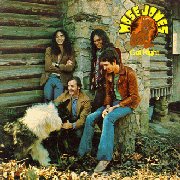 |
Get Right (1973, 41.45) ***/TT½ |
|
| Get Right Here We Go Again Kiwi Stumble Boogie Ole Man Trouble What Kind of Woman Would Do That Barroom Sweeper It's a Whole Lot of Fun Ode to Drugan |
All That I've Got (I'm Gonna Give it to You) Julia's Beautiful Friend Get Right (reprise) |
|
Current availability:
Mellotron used:
As you've probably gathered from their place on this site, Mose Jones were a band, not a person; discovered by Al Kooper and signed to his Sounds of the South label, they were also instrumental in his signing of Lynyrd Skynyrd, for which they deserve their own little place in history. They debuted with 1973's Get Right, displaying the 'southern' sound that Kooper clearly loved, albeit in a far less 'rock' vein than Skynyrd, taking in soul, r'n'b, blues, boogie and a dozen other related genres, highlights including the energetic It's A Whole Lot Of Fun, the folky Ode To Drugan and the storming Julia's Beautiful Friend.
Guitarist Jimmy O'Neill (as against keys man Steve McRay) plays Mellotron, with background strings parts on Here We Go Again and Ole Man Trouble, more upfront ones on the funky What Kind Of Woman Would Do That and flutes on Ode To Drugan and Julia's Beautiful Friend. In hindsight, you can see why the band's relatively generic sound never broke through to a wider audience, but this is a pretty decent album, its Mellotron usage merely icing on the cake.
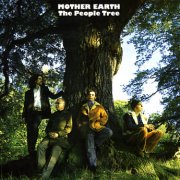 |
The People Tree (1995, 66.15) **½/½ |
|
| Institution Man Jesse Stardust Bubblegum Mister Freedom Warlocks of the Mind, Part 1 Dragster Find it in the End The People Tree |
Apple Green Time of the Future Saturation 70 Illusions Warlocks of the Mind, Part 2 A Trip Down Brian Lane |
|
Current availability:
Mellotron used:
Mother Earth appeared in the mid-'90s, fêted as the Next Big Thing for a few short months. Labelled Acid Jazz, they were apparently working in the same area as the James Taylor Quartet (ex-Prisoners organist, guests on the album), with similar heavy (and welcome) reliance on the Hammond, although their soul influences were rather less welcome in some quarters, not least at Planet Mellotron Towers. It's like bloody Weller (who also guests); what's this fascination with Motown and Stax? OK, some cool music at the time, whether or not you like it, but it never sounds right reinterpreted by white Brits, does it? Go on, admit it.
The People Tree was Mother Earth's overlong (note: not overdue) second album, most tracks well exceeding their natural length (Time Of The Future is an obvious example), rather in the manner of Oasis' contemporaneous (and awful) Be Here Now. It has some nice touches, not least the voice-box guitar running right through Stardust Bubblegum, without once sounding like Peter Frampton and the oddly Uriah Heep-ish organ on Mister Freedom, although they're relatively few and far between. Santana aren't so much an influence on the presumably ironically-titled Warlocks Of The Mind, Part 1, as source material, right down to the guitar tone, while Dragster's chorus melody rips The Beatles, albeit subtly. Find It In The End could be any one of hundreds of turn-of-the-'70s ex-soul bands who discovered the joys of Rocking Out and the otherwise by-numbers Illusions throws an unexpected neat little 'turn on a sixpence' unison guitar/bass break into its verses. The outrageously lengthy A Trip Down Brian Lane references Yes' manager, for no known reason, the male and female vocalists sounding like the joke's gone straight over their heads while the band jam it out for all they're worth for over ten minutes, sounding as close to Traffic as they're ever going to.
Basically, though, most of this album seems to be an attempt to turn soul, funk and jazz influences into a big, '90s-style hippy-friendly stew, rather missing the mark on most fronts, only really working for your jaded reviewer when they crank the guitars up a bit. Background Mellotron flute chords from Bryn Barklam on the title track, incidentally, although the string and woodwind on Jesse sound real. So; Acid Jazz: hot or not? Only you can decide, dear reader; I'd have edited this sprawling mess down to forty mins, TOPS and shucked off a few of the more obvious influences, but it wasn't my album, so it's as it is.
See: Paul Weller
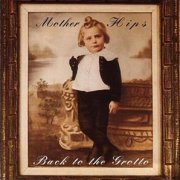 |
Back to the Grotto (1993, 60.43) ***½/T |
|
| Hey Emilie Potrero Road Run Around Me Chum Back to the Grotto This is a Man Precious Opal Two Young Queens |
Stephanie's for L.A. The Figure 11 Hot Lunch Turtle Bones |
|
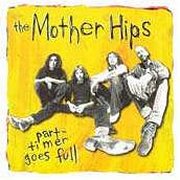 |
Part-Timer Goes Full (1995, 57.55) ***/½ |
|
| Shut the Door Stoned Up the Road Mona Lisa and the Last Supper Poison Oak Afternoon After Afternoon Magazine Are You Breathing? Pet Foot |
Sunshine Feel Tehachapi Bloodline Bent Carousel Showing it All to Bad Marie Been Lost Once Trunk Box |
|
 |
Green Hills of Earth (2001, 49.52) ***/TTT |
|
| Given for You Life in the City Take Us Out Pull Us All Together Singing Seems to Ease Me Protein Sky Channel Island Girl Sarah Bellum |
Such a Thing Emotional Gold Del Mar Station Rich Little Girl Smoke Seaward Son |
|
Current availability:
Mellotrons used:
The Mother Hips released their debut, Back to the Grotto, in 1993 (or possibly '94; the date seems slightly nebulous), a rather appealing alt./roots rock effort which, although a little overlong, somehow manages not to outstay its welcome too badly. My guess is that, like many debut albums, this is the result of several years' songwriting, distilled and honed to perfection, top tracks including Potrero Road, the title track and The Figure 11, although the disc finishes on a strangely inconclusive note, as Turtle Bones peters out in a rather non-album-closing kind of way. Paul Hoaglin wrote to me some time back to tell me about his session involvement with the band, which on this release consists of a background Mellotron string part that suddenly swells up under the guitar solo on Potrero Road; it's only a shame it wasn't used more.
They followed up with 1995's Part-Timer Goes Full, sitting fairly firmly in the 'alternative rock' non-category, being a bit indie, a bit heavy, a bit pop and probably a bit of several other things. It's not a bad record, but lacks any particularly special songwriting; something of a handicap in their field, I'm afraid. For all that, the playing's good, the songs aren't actually bad and everyone involved seems to be extremely enthusiastic about what they're doing. Hoaglin plays keys right across the album, although there's only any Mellotron on one track, with some barely audible 'violined' string chords on Poison Oak.
Their next Mellotron album was three releases later, 2001's Green Hills of Earth (named for the Robert A. Heinlein short story/anthology, fact fans), but I'm sad to report, it's no more captivating than its predecessor, being another so-so, slightly Americana-influenced 'alt.rock' effort. By far the most interesting thing about the record is its obviously real Mellotron use from Hoaglin once more, plus Greg Loiacono, with strings on the wittily-titled Sarah Bellum, Emotional Gold, Del Mar Station (sounding wonderfully like it was recorded in about 1973) and Rich Little Girl, plus flutes on closer Seaward Son. Well, they made us wait for it, but it was sort-of worth it when we got there.
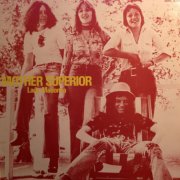 |
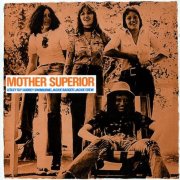 |
Lady Madonna (1975, 39.25) ***/½No Time Toulouse LautrecJust One Look Mood Merchant Love the One You're With Ticklish Allsorts Lady Madonna Years Upon Tears |
Current availability:
Mellotron used:
How is it that a London-based, all-female jazz/prog group from the mid-'70s could have existed without their name being better known? The era's chauvinism didn't help (he says, as if anything's changed), but the real death-blow presumably came from their inability to secure a UK release for 1975's Lady Madonna, its sole issue being a small-run Swedish LP. In retrospect, while highly competent, this sits too close to that 'middling rock' sound that so many artists fell into at the time, while (and I hate to say this) the band's diversity worked against them, the album's overall sound lacking cohesion. Better tracks include the impressive Mood Merchant, the instrumental Ticklish Allsorts (ouch) and closer Years Upon Tears, although covers of Stephen Stills' Love The One You're With and (of course) Lady Madonna itself are less successful.
The album was recorded in downtime at central London's IBC Studios, giving Kiwi keyswoman Lesley Sly access to a wider range of 'boards than she would otherwise have had. She sticks largely to the time-honoured organ and piano, with the occasional synth line, although she adds a soupçon of Mellotron to Years Upon Tears, in the form of, quite literally, two chords on an unidentified woodwind sound. Add another album to the 'utterly minimal Mellotron use' list. To my surprise, Audio Archives reissued this as early as 1996, a mere twenty years after its original release.
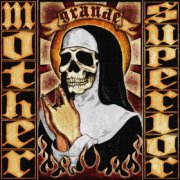 |
Grande (2008, recorded 200?-07, 41.18) ***/½ |
|
| Get That Girl (remix) Five Stars (live) Four Walls (new version) Brain Child Jaded Little Princess (live) Meltdown (remix) Beg Borrow Steal (live) Moanin |
Happiness is a Warm Gun Let it Go (new version) |
|
Current availability:
Mellotron used:
LA-based Mother Superior have been around since the early '90s, peddling their own particular brand of rock'n'roll, containing elements of '60s garage rock, '70s hard rock and '80s US punk. 2008's Grande isn't actually a new album as such, being a (thankfully not overlong) collection of radio recordings, outtakes and the like, including two brand new tracks, overseen by West Coast guru and Mellotron owner Brian Kehew. This is one of those albums that are a perfectly good listen, but, unless you're really into the band's 'thing', its contents are largely going to pass you by, be they the garage punk of Get That Girl and Five Stars, the hard rock of Brain Child and Meltdown or the Americana of Four Walls and closer Let It Go.
Kehew's credited with Mellotron, although the only place it even might be is the background brass on Brain Child. Overall, then, hardly one for Mellotron freaks, although garage rock types should probably give the band a go, assuming you're not already aware of them. Is this a good starting point for them? Probably as good as any.
 |
The Flax of Reverie (2008, 48.56) **½/TRiversideThe One in Water The Untouched Dew Neverbegoodwood Cauldron Hypnogogue |
Current availability:
Mellotron used:
Mothlite (named in honour of Stan Brakhage's avant-garde 1963 film Mothlight) are the duo of multi-instrumentalist Daniel O'Sullivan (Guapo, Ulver) and Antti Uusimaki, who've released just the one album, 2008's pretentiously-titled The Flax of Reverie. It falls between various stools, those being post-rock (its chief component), various avant- and prog stylings and, er, a smattering of Coldplay, chiefly in the vocal department. It consists of three mid-length and three lengthy tracks, all murmured vocals, doomy piano chords and real strings, alongside various woodwinds. But is it any good? Matter of opinion, I suppose, like everything, really; it has good elements, but I'm not convinced it works as a whole, particularly the dull, overlong Cauldron. Too goth, frankly.
Now: the Mellotron. How, you may ask yourself, can Thompson not know whether or not the machine in question belongs to him? Because, dear reader, Mr. O'Sullivan borrowed my M400 for an evening back in 2005, but I never found out on what album the end results finally appeared. He seemed rather vague about it when questioned on the matter some years later (what is this, a bloody police procedural?), but 'thought it might have been an Æthenor record'. Having listened to three (a tedious task), I can report that it isn't. A false Mellotronic credit on the last Guapo album, Elixirs, led me to believe that Flax... would be the same, but about halfway through closer Hypnogogue, there it is, strings (and background choirs?) blasting away in very real-sounding fashion, not to mention a choppy string part later on that you simply can't do with samples, even though we're presumably talking something recorded at least two years before the rest of the album, then slotted in somehow.
See: Samples etc. | Guapo
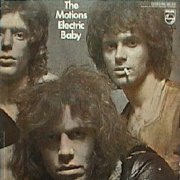 |
Electric Baby (1969, 43.27) **½/T |
|
| It's Alright Wedding of the Hundred Brides What's Your Name Illusions Looking in My Eyes Freedom Electric Baby As Long as I Have You |
Eliza Slow Motion Little Boys Life Shilly, Shally Hey Everybody Chicks |
|
Current availability:
Mellotron used:
The Motions were a Dutch beat group who, like all their contemporaries, had to adapt to changing fashions towards the end of the '60s. 1969's Electric Baby was their sixth album in four years and is... well, a bit of a mess, to be honest. It opens with the cheese-pop of It's Alright, quickly moving through the poppy blues/rock of Wedding Of The Hundred Brides, the music-hall of What's Your Name, while the bluesy Slow Motion features a ripping Hammond solo. Confused? Oh yes... Maybe they were just trying to appeal to everyone, with the obvious danger of that approach.
Presumably either Jan Vennik or Han Cooper play Mellotron, with a swirly, pitchbent string part on the title track, plus what may well be muted brass, although all other string parts are real. Fans of the late '60s psych/hard rock crossover area will find a handful of tracks worth hearing, but for everyone else, I'm afraid Electric Baby's a bit of a waste of time, even with one decent Mellotron track.
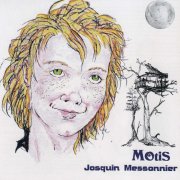 |
Josquin Messonnier (2014, 49.00) ****½/TTTTT |
|
| Couchés dans la Paille (Ouverture) Naissance Premières Sensations Josquin Messonnier Rêves Rêves (instrumental) La Cabane Le Géant |
Ecrire et Chanter L'Initiation Couchés dans la Paille (Continuum) |
|
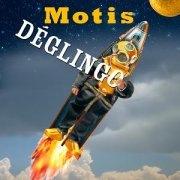 |
Déglingo (2018, 48.25) ***½/TTTT |
|
| La Fièvre de l'Or Cavale Peut-Être Somnambule La Distance Déglingo L'Appel des Vents Nature |
Monsieur Machine Mars L'Effet Overview |
|
Current availability:
Mellotron used:
Motis' sixth studio release, 2014's Josquin Messonnier, appears to be a concept album in the manner of Ange's Emile Jacotey, although my French isn't good enough to say for sure. As with most 'foreign-language' prog, however, lacking the relevant language skills should be no barrier to an appreciation of the album for the open-minded. Good job, as Josquin Messonnier is quite excellent, combining folk and symphonic prog stylings with an occasional renaissance (as against Renaissance) vibe, top tracks including Naissance, the Hammond-driven title track, the beautiful Rêves (Instrumental) and Le Géant, although, in all honesty (and this is a rarity), there's not one piece here that would improve the album by its omission. At last! Bandleader Emmanuel Tissot gets hold of a real Mellotron, using it almost everywhere, with flutes and/or strings on most tracks, other use including the overt brass on Naissance, cellos on the title track, choirs on Rêves (Instrumental) and vibes closing Le Géant (although the ones on Ecrire Et Chanter sound real). Tissot doesn't hold back, which, in some cases, could make for Mellotronic overkill, but he gets the balance just right here, enhancing the music wherever it's used without ever actually overdoing it. What a wonderful record.
Four years on, Déglingo (Corsican for 'delight', apparently) loses the folk element almost entirely, being more what ProgArchives would call 'eclectic prog', a rather poor description that covers a multitude of styles/sins. I'm not sure it's quite the match of its predecessor, its song-based Ange-esque moves probably at their best on La Distance, L'Appel Des Vents, Nature and, above all, closer L'Effet Overview. Tissot's Mellotron appears on most tracks, with strings on opener La Fièvre De L'Or, Somnambule and, more upfront, Cavale, choirs on Peut-Être, guitar, of all things, on La Distance, brass on the title track, flutes and lush strings on Monsieur Machine, clicky choirs on Mars and what sounds like a brass/strings mix on L'Effet Overview. I suspect this is an album whose delights (see what I did there?) will become more apparent with repeated plays; good, but less individual than Tissot's previous work. Also allow me to say that he needs to employ a new graphic designer tout suite.
See: Samples etc.
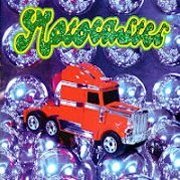 |
Stay Loaded (1994, 39.46) ***/½ |
|
| The Buddha The Habit Straightfaced Farah Broken Eyes Pull the Plug Uranus Dual-Active |
Truth Motorolla Blues Sweet Pearl |
|
Current availability:
Mellotron used:
As far as I can ascertain, North Carolina's Motocaster (originally Motorolla) only made the one album, 1994's Stay Loaded, the raucous contents of which are possibly best illustrated by Motorolla Blues (named for their original, rather corporately-unwise moniker choice) and closer Sweet Pearl, other highpoints including opener The Buddha, the pounding The Habit and the point where Pull The Plug speeds up over the course of a few bars.
Although drummer John Heames' credited Mellotron flutes on Truth are a bit on the shaky side, given that the album's produced by the legendary Mitch Easter, I'd be surprised if they were sampled, which isn't to say that they sound particularly real. Fans of US college rock may find this a little noisy, but Motocaster are a welcome alternative to the serried ranks of noise-by-numbers outfits that plagued the era.
Motorpsycho (Norway) see: |
 |
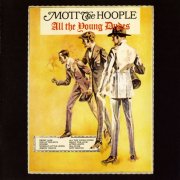 |
All the Young Dudes [expanded ed.] (1972, 41.11/72.59) ***/0 (T) |
|
| Sweet Jane Momma's Little Jewel All the Young Dudes Sucker Jerkin' Crocus One of the Boys Soft Ground Ready for Love/After Lights |
Sea Diver [CD adds: One of the Boys (demo) Black Scorpio (demo) Ride on the Sun (demo) One of the Boys (single version) All the Young Dudes (Bowie/Hunter vocal) Sucker (live)] |
|
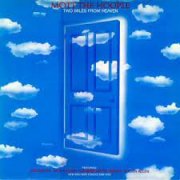 |
Two Miles From Heaven (1980, recorded 1969-72, overdubbed 1980, 56.30) ***½/T |
|
| You Really Got Me (vocal) Road to Birmingham Thunderbuck Ram Going Home Little Christine Keep a Knocking Black Hills Black Scorpio (Mommas Little Jewel) |
One of the Boys Till I'm Gone Now Growing Man Blues Ride on the Sun Surfin' UK Ill Wind Blowing |
|
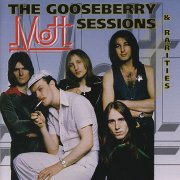 |
The Gooseberry Sessions & Rarities (2000, recorded 1975-79, 65.00) **½/½ |
||
| Love Now Love Me Always Hey! There, Annie The Bright Days !GYP! Shout it All Out Leave My Woman Alone I'll Tell You Something |
Did I Dream Last Night? She Does it Shout it All Out I'll Tell You Something Krazy Kristmas Krackers Pass the Port, Gramps The Million Ton Snowflake Golders Green (Stomp) |
The Spook Meets the Kook Massacre Let's Rat 'Ave a Maria Broadstairs Beach Holmes on the Rage |
|
Current availability:
Mellotrons used:
I'm sure you all know the Mott the Hoople story, but a brief recap may be in order. After Island's Guy Stevens (who also named the band after Willard Manus' bizarre novel of the same name) made them replace vocalist Stan Tippins with Ian Hunter, they made four albums for him, selling increasingly badly, before David Bowie's patronage turned their career around. He wrote All The Young Dudes for them (seemingly immediately regretting giving away such a killer track) and produced the album of the same name, highlights including most of side two, not least the jammed-out One Of The Boys and the groove-based Soft Ground. Note their version of guitarist Mick Ralphs' Ready For Love, soon to follow him to the dull-but-hugely-successful Bad Company. Now... The liner notes for Ride On The Sun, on the expanded CD reissue, tell us that not only was it a demo for album closer Sea Diver, but that Morgan Fisher (not actually a member in '72) overdubbed Mellotron onto the track in 1980 (see below), adding a string part; nice to hear, although I can't honestly say it enhances the track that much.
When Hunter left the band in 1975, he probably expected them to fold, so it must've come as a surprise to hear that they were carrying on as simply Mott, with Nigel Benjamin on vocals. Amazingly, they managed another two albums, '75's Drive on and the following year's Shouting & Pointing (shades of the post-Jimbo Doors here, albeit without the death), before changing lineup and becoming the entirely average hard-rock-by-numbers British Lions. After they, in turn, split in 1979, drummer Dale Griffin (by now a respected studio engineer) transferred a clutch of 8- and 16-track tapes of unreleased/unfinished Mott material onto 24-track, getting various band members to overdub new parts where needed. The end result, 1980's Two Miles From Heaven, is one of the odder items in an already fragmentary catalogue, mixing and matching material from a four-year period into a reasonably cohesive whole, Fisher added Mellotron to two tracks, with a major flute part on the brief Black Hills and strings on Ride On The Sun, as mentioned earlier.
Move on to 2005 and those estimable Angel Air folks released The Gooseberry Sessions & Rarities, mopping up the results of various Mott sessions for the faithful, those being 'The Gooseberry Demos' (between Hoople and Mott), 'The Gooseberry Auditions' (Benjamin and guitarist Ray Majors' auditions) and 'Christmas Collection 1976' (self-explanatory). But is any of it any good? I hear you cry. Weeeeell... The two Mott albums used to be second-hand shop staples in London, alongside similarly flaccid efforts by the likes of Bandit (who supplied AC/DC with bassist Cliff Williams) and Widowmaker (featuring ex-Love Affair vocalist Steve Ellis), which, it seems to me, was the real reason punk happened; the big bands were untouchable, but the club circuit was clogged up with second-rate hard rock and prog (admittedly, the latter was preferable to the former) and youngsters wanted some excitement. Am I not wrong? Lecture over.
But what of The Gooseberry Sessions? Well, it's all a bit ordinary, truth be told; echoes of Mott's previous glam/hard rock style mixed with the kind of middling rock that was rapidly going out of fashion (largely due to its dullness), Benjamin's rather faceless vocals to the fore. The occasional moment of excellence slips through (the guitar solo on I'll Tell You Something is worthy of the original band), but it's really all a bit, y'know, average. The oddest track here is easily Golders Green, a ludicrous rewrite of Steeleye Span's version of the traditional Gaudete, but the rest of the Christmas stuff is as much of a waste of time as you'd expect. So what about the Mellotron, then? Keys man and all-round nutter Fisher adds a rather screechy string part to The Bright Days, plus a weird, high-pitched, clicky keyboard solo on Shout It All Out, although if it's a Mellotron, I can't imagine what tapes are being used. Overall, collectors only, I think; certainly not worth it for the minimal Mellotron.
 |
No Turning Around (1973, 40.27) ***/T |
|
| Old New Hampshire Jesse Hazard County Fallin' Back Natural Drive Thinkin' About Birds If I Could Be Alone With You Circus Tent |
Reaper Jackson Steele Ballad of a Traveling Woman Waitin' Out the Winter |
|
Current availability:
Mellotron used:
You've probably never heard of Eddie Mottau, either, but it turns out that he played guitar on John Lennon's Walls & Bridges, amongst other session work. 1973's No Turning Around was his first (of two) solo albums, an acceptable-enough collection of singer-songwriter material, at its best on Jesse and Fallen Back, perhaps, although this probably isn't the most exciting thing you'll hear all year.
Mountain's Felix Pappalardi plays various instruments on two tracks, including an orchestrally-arranged Mellotron strings part on closer Waitin' Out The Winter, not to be confused with the real strings on If I Could Be Alone With You. Reissued by Korea's Big Pink label in 2017, this can also be heard of YouTube. Summation? Pleasant, but unengaging.
 |
New Skin (2004, 39.16) ***/T |
|
| Haywire Harry Smith's Cats Night Night Bell & Howell Festival of Errors Fall Giving Up the Ghost |
Gospel Melodica Still Freeze Green The Wake |
|
Current availability:
Mellotron used:
Mount Analog are based around producer Tucker Martine and whoever he wants to work with, it seems, 2004's New Skin (their second and last album) adding another nine musicians, including noted NYC avant-gardist Bill Frisell. The album's actually quite difficult to quantify: is it low-fi experimentation? Weird folk? Laptop electronica? All of the above? Suffice to say, 'songs' are notable only by their absence, replaced by 'pieces', utilising various instrumentation to varying effect, Night Night being a sparse piano work, Bell & Howell neo-jazz, Festival Of Errors glitchy electronics... You probably get the idea.
Steve Moore plays (real?) Mellotron, with background strings on Harry Smith's Cats plus flutes (and cellos?) on Bell & Howell, although I suspect all other string sounds are samples or taken direct from other artists' records, as Martine is credited with turntables, amongst many other things. This isn't an album for the Lady Gaga fan in your life (God, that reference is going to look so dated in a few years... Imagine if I'd said 'Spice Girls') and is all the better for it. I'm not sure I really understand where it's coming from, but I'm somehow glad that it goes there, although I couldn't honestly say it's worth it for the Mellotron.
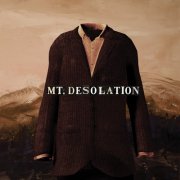 |
Mt. Desolation (2010, 48.54) **½/T |
|
| Departure Annie Ford Bridal Gown State of Our Affairs Bitter Pill Another Night on My Side The 'Midnight Ghost' Platform 7 |
My My My Coming Home Halo of Fireflies |
|
Current availability:
Mellotron used:
Mt. Desolation are, effectively, a Keane offshoot, which really doesn't bode well, although their debut, 2010's Mt. Desolation, could, I suppose, be worse (he said, grudgingly). Tim Rice-Oxley and Keane's new bassist, Jesse Quin, are joined by members of The Killers, the horrible Mumford & Sons and others, making a lightweight countryish record that sounds like exactly what it is: country as imagined by nice, middle-class English boys. While nothing here's truly horrible, nor does anything particularly stand out. 'Authentic' this is not.
Rice-Oxley plays Mellotron, with background strings on Bitter Pill and flutes on Another Night On My Side, although (guess what) it's hard to say whether or not it's real. There's a studio session YouTube video on their website (one of those irritating ones that tries to inflict some Quicktime bollocks onto the viewer on every page), which shows three pianos, a CP70 (of course), a Rhodes and a Wurly, plus a harmonium, but no Mellotron. Which means nothing, of course; it might just not've been in shot, or only hired in for a day. Anyway, country music for wispy English indie kids. Not utterly terrible, but not very good, either.
See: Keane
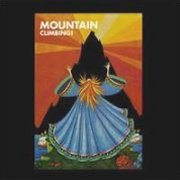 |
Climbing! (1970, 32.38) ****/½Mississippi QueenTheme for an Imaginary Western Never in My Life Silver Paper For Yasgur's Farm To My Friend The Laird Sittin' on a Rainbow Boys in the Band |
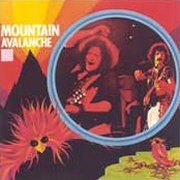 |
Avalanche (1974, 42.10) ***½/T |
|
| Whole Lotta Shakin' Goin' on Sister Justice Alisan Swamp Boy Satisfaction Thumbsucker You Better Believe it I Love to See You Fly |
Back Where I Belong Last of the Sunshine Days |
|
Current availability:
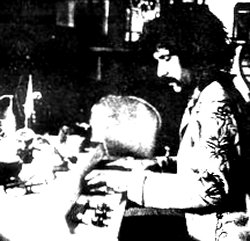 |
Mellotrons used:
Mountain are the subject of one of those weird 'Mellotron myths', to boot, they used Mellotron Hammond tapes. Well, maybe they did, but given that they had a perfectly good Hammond, it seems a little odd; more news if I ever get any sense out of anyone knowledgeable on the subject. There's a smattering of Mellotron on guitarist/mainman Leslie West's solo LP Mountain (confusingly), also a little on Mountain's debut proper, Climbing!. Opening with two of the band's best-loved numbers, Mississippi Queen and Theme For An Imaginary Western, Climbing! sets out the band's style in no uncertain terms, sounding like, effectively, a US replacement for the much-missed Cream, only heavier. The pressure only lets up occasionally, with the acoustic guitar piece To My Friend and the quiet, if slightly sinister The Laird, before more heaviosity ensues. Two credited Mellotron tracks, played by keys man Steve Knight; it's completely buried in the mix on Theme For An Imaginary Western, sadly, but there's a little brass to be heard on Boys In The Band.
Despite rumours, I can't hear any Mellotron on their classic, '71's Nantucket Sleighride (****½) and they didn't use one again until after their later split and reformation. Avalanche was Mountain's fourth studio effort (and their last until the mid-'80s) and isn't really a patch on their first two records, to be honest, although it's a fairly good hard rock album in its own right. They almost completely rewrite Whole Lotta Shakin' Goin' On, other highlights including the acoustic Alisan and the rather rocking You Better Believe It. The only Mellotron, from bassist Felix Pappalardi, who originally played one when producing Cream back in '68, is on Sister Justice; basically, some nice string chords over the fairly heavy chorus. Pleasant, but inessential.
See: Leslie West | Creation/Felix Pappalardi
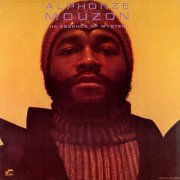 |
The Essence of Mystery (1972, 44.35) ***/T½The Essence of MysteryFunky Finger Crying Angels Why Can't We Make it Macrobian Spring Water Sunflower Thank You Lord Antonia |
Current availability:
Mellotron used:
Alphonse Mouzon is a jazz drummer who's worked with Larry Coryell, Miles Davis, Stevie Wonder, Carlos Santana... He's also found time to release a slew of solo albums, of which 1972's fusion-fest The Essence of Mystery was the first, a mixture of jazz, fusion and the R&B of the era, with fiery playing from all concerned on the jazzier material. Best tracks are probably the title track, the Rhodes-heavy Sunflower and closer Antonia, where Mouzon gets a chance to show off his percussive skills to the max, but as always, that's really down to personal taste.
Mouzon plays the Mellotron himself, with strings and cellos all over the opening title track and strings on Macrobian, used extensively on both tracks. Overall, then, a decent soul/fusion album, should you be into such things; enough great playing to keep jazzers happy, but not quite enough Mellotron for the likes of you and I.
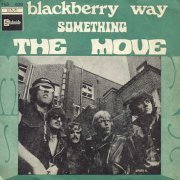 |
7" (1968) *****/TTT½ Blackberry Way Something |
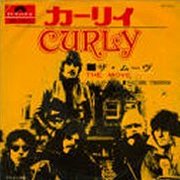 |
7" (1969) ***/T Curly This Time Tomorrow |
Current availability:
Mellotrons used:
The Move emerged from the early-'60s beat boom as Birmingham's prime contender, led (eventually) by multi-instrumentalist Roy Wood, but, as the decade progressed, they quickly shifted across to a more interesting area along with many of their contemporaries. Remembered for being the first act played on the fledgling Radio 1 in 1967, by this time The Move had become an excellent psychedelic pop group with several hits which stand up well today. The fifth of these, Blackberry Way, hit the charts in December 1968, reaching No. 1 (their only chart-topper) early the following year; not only a killer song but a minor Mellotron classic, too. The ominous reverb-drenched minor-key ascending string line under the verse finally modulates wonderfully via an intricate bridge into the major-key chorus. There's more Mellotron in the middle-eight, too, before the song shifts back into the last verse. Incidentally, apparently future ELO keyboardist Richard Tandy played harpsichord on the track, although I suspect Roy plays the Mellotron.
Their next hit, Curly, reached the charts in July '69, the equivalent of a couple of geological epochs at a time when singles were banged out every two or three months. The recorder-led track is more commercial than Blackberry Way, but still rates way above almost anything else around at the time. There's very little Mellotron on this one; just a few bars of strings in the middle-eight, but it's definitely worth a listen. Having now listened to all three of the band's albums, I can quite categorically state that there's not a jot of Mellotron among the lot of 'em, despite rumours that there was some to be heard on their last effort, Message From the Country (***).
See: ELO